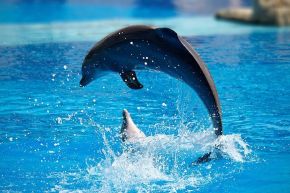A freight train consists of two
8.00×104 kg engines and 45 cars with average masses of
5.50×104 kg. (a) What force must each engine exert backward on the track to accelerate the train at a rate of
5.00×10−2 m/s2 if the force of friction is
7.50×105 N, assuming the engines exert identical forces? This is not a large frictional force for such a massive system. Rolling friction for trains is small, and consequently trains are very energy-efficient transportation systems. (b) What is the force in the coupling between the 37th and 38th cars (this is the force each exerts on the other), assuming all cars have the same mass and that friction is evenly distributed among all of the cars and engines?
